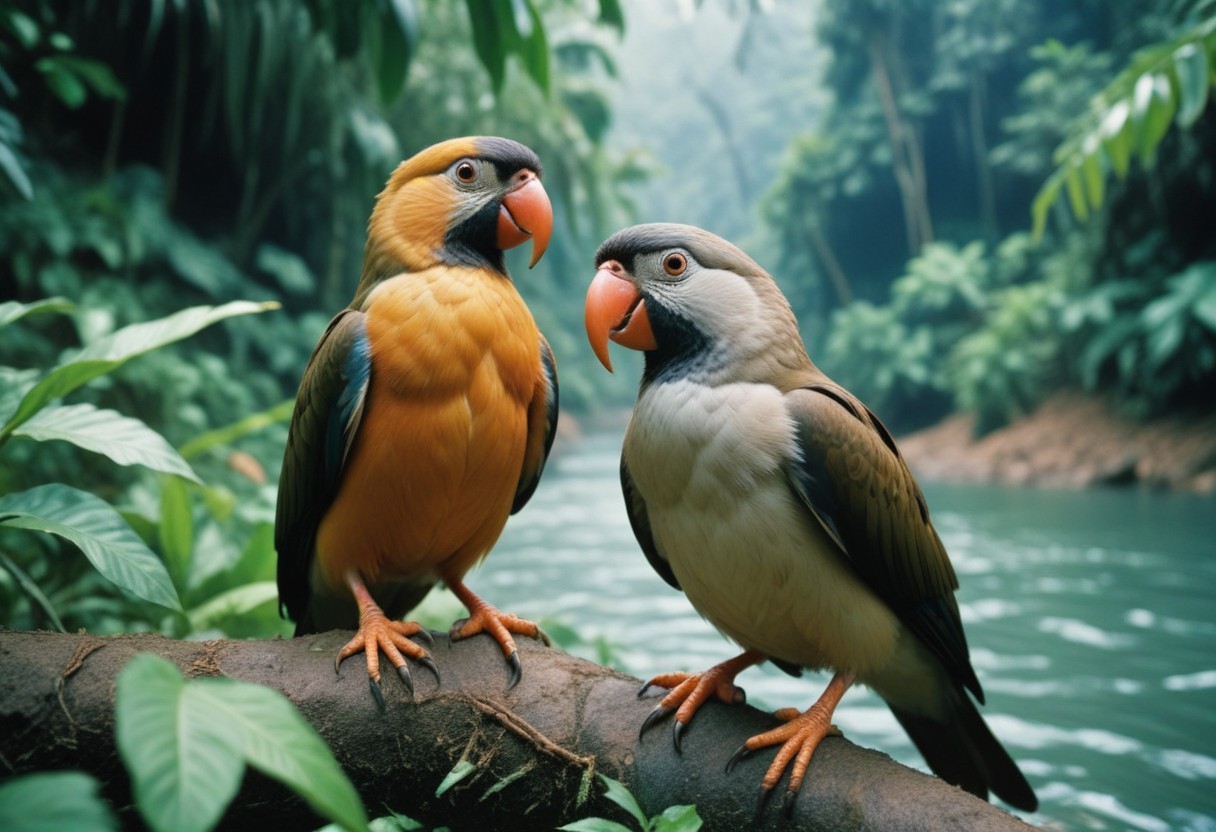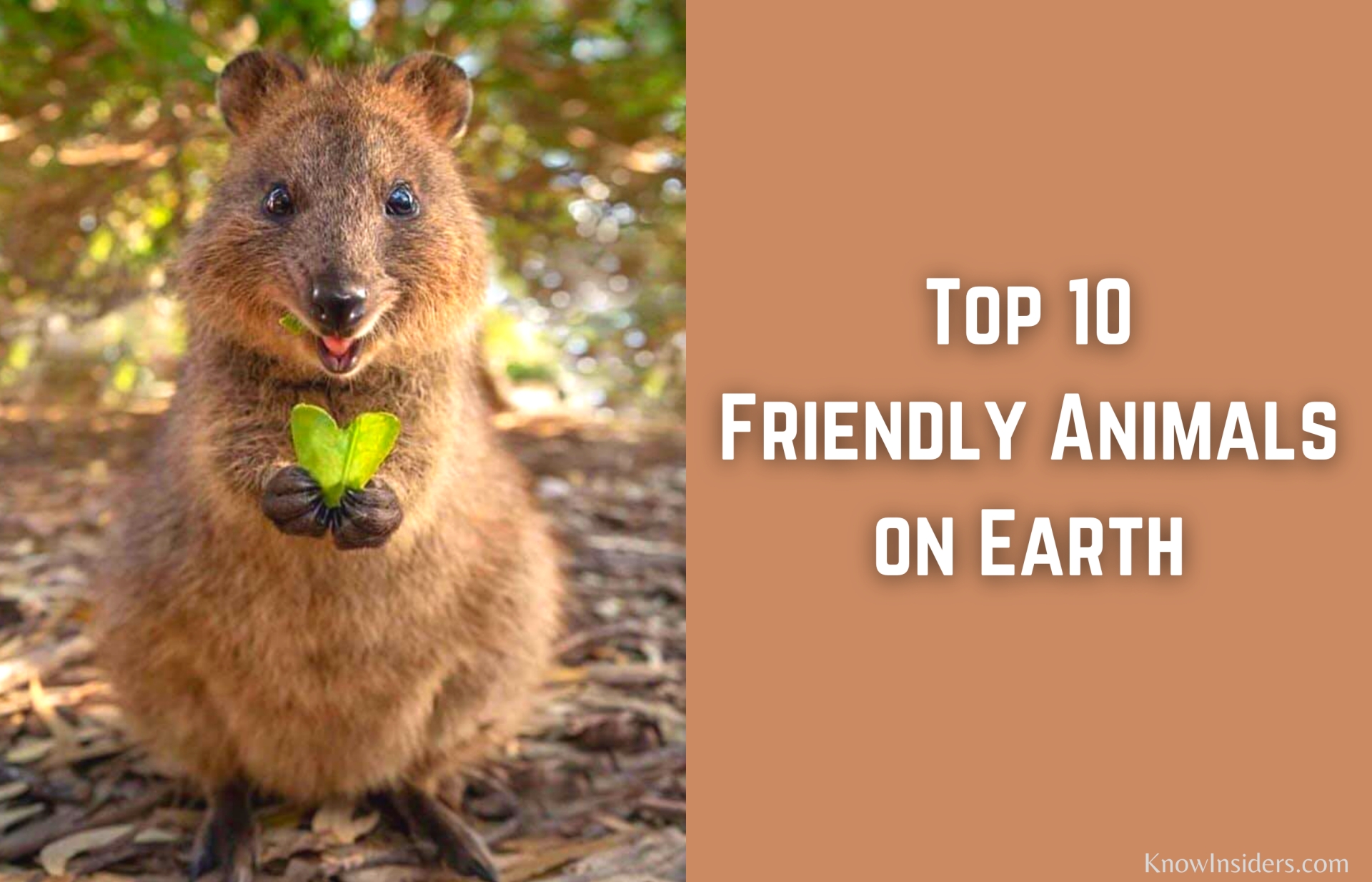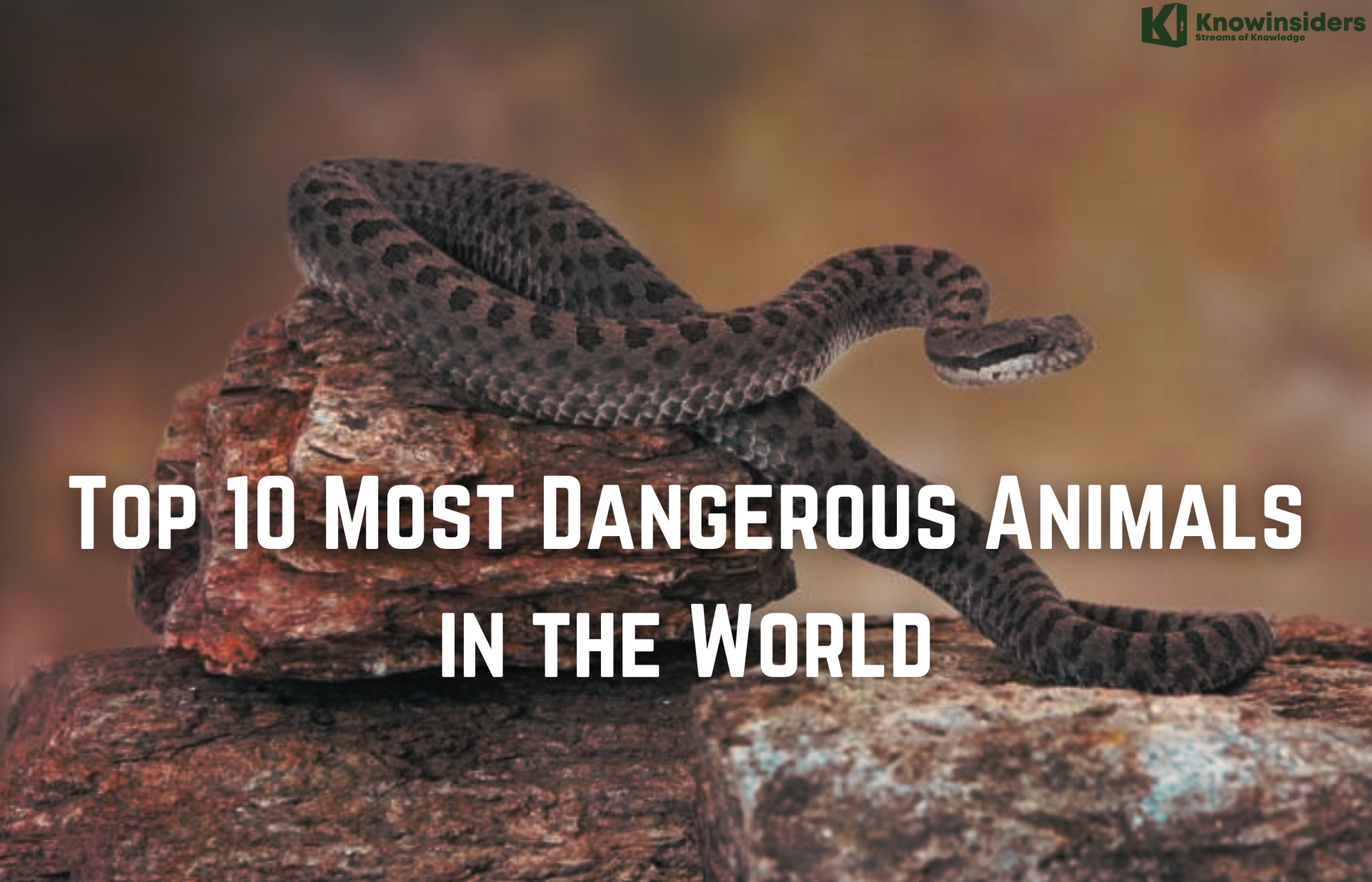Top 10 Illegal Animals To Own As Pets In The US That You Must Know
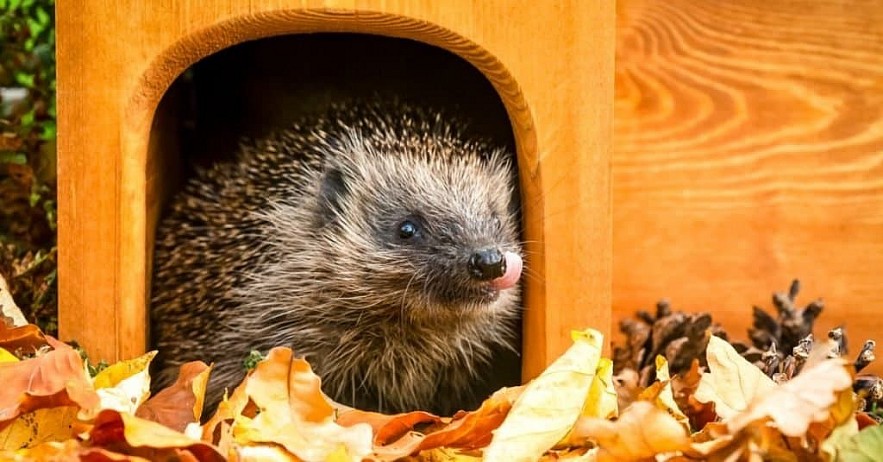 |
| The Illegal Animals To Own As Pets In The US |
| Table of Contents |
If you live in the United States and want to own an exotic pet, make sure you check your state's laws first. Many states have unconstitutional pet laws that you must follow. Even animals that are commonly raised as pets in other parts of the world may be illegal in the United States.
While these laws can be inconvenient for pet owners, they are usually enforced in the name of conservation or safety. Animals that are difficult or impossible to domesticate may pose a threat to you or your community if they attack, whereas the more docile animals on this list may pose a threat to your local ecosystem if they escape.
Top 10+ Illegal Animals To Own As Pets In The US
1. Skunks
One of the first steps for anyone thinking about getting a skunk as a pet should be descending it, which entails removing its scent glands so it doesn't spray its odor around the house. Outside of a few states, however, owning a pet skunk is still illegal.
READ MORE: Top 10 Animals With the Longest Lifespan on Earth
2. Turtles
What is the rationale behind the ban on turtles with shells smaller than four inches?
The ban on turtles with shells smaller than four inches, including snapping turtles, is in place to mitigate the risk of salmonella transmission. These tiny turtles naturally carry salmonella bacteria on their shells, which can pose a significant health risk, particularly to children.
3. Lemurs
If you think it would be fun to own a lemur, keep in mind that they are illegal pets in Ohio, Nevada, Florida, and North Carolina. Furthermore, the sale or transfer of lemurs is strictly prohibited in many other states.
It is cruel to own only one lemur because they are social animals. Females have scent glands on various parts of their bodies that they use to attract males in the wild. They will leave this odor all over your house, and it is extremely offensive. Lemurs enjoy making noise, so expect them to sing constantly, often at the top of their lungs. Lemurs are typically aggressive, especially as they approach sexual maturity.
4. Sugar Gliders
Sugar gliders are a popular pet, but they are illegal in many states, including Alaska, California, Hawaii, and Pennsylvania. They are also prohibited in some cities, such as St. Paul, Minnesota, and New York City.
Even if owning a sugar glider is legal in your area, you should reconsider getting one as a pet. They prefer a dark environment during the day because they are nocturnal. Their food, which consists of specialized water and nectar drinks, can be difficult to find. Sugar gliders, like domesticated animals, require regular veterinary care, but most veterinarians will not treat them.
5. Pigs
Mini pigs are becoming popular as household pets, but there is no such thing as a "mini" pig. "Teacup" and "micro" pigs are simply malnourished piglets that will eventually grow to weigh more than 100 pounds, with some exceeding 500 pounds. Furthermore, many adults are capable of becoming aggressive toward humans. Many cities forbid keeping farm animals within city limits, which many pig owners are unaware of until it's too late.
 Top 10 Richest Pets With Highest Earning In The World Top 10 Richest Pets With Highest Earning In The World |
What are the concerns about keeping pigs as pets?While miniature pigs are becoming more popular, they eventually grow to be too large, frequently exceeding 100 pounds and sometimes exceeding 500 pounds. Additionally, adult pigs can be aggressive toward humans. Pig ownership is also restricted by city ordinances and regulations regarding farm animals. |
6. Primates
Owning a primate as a pet often depends on whether it is a monkey or an ape. Tarsiers, tamarins, chimps, squirrel monkeys, macaques, capuchins, marmosets, spider monkeys, and guenons are the most commonly kept pet monkeys. However, due to their high energy levels and demanding needs for space and social interaction, primates, regardless of breed, are usually poor candidates for pets. It is legal to keep a monkey as a pet in Arizona, Mississippi, Indiana, and Tennessee, but not an ape; in Wisconsin, Florida, and Texas, certain breeds of monkeys are permitted; in Illinois, only residents with disabilities may keep a capuchin monkey; and in Connecticut, monkey ownership is currently being phased out.
7. Alligators
It is legal to own a pet alligator in Florida if you have a license; it is legal with a permit in eleven other states; and it is illegal in all other states. However, just because you can privately own an alligator does not mean you should: Individuals can grow to be over eleven feet long and capable of inflicting severe harm. With at least 24 deadly alligator attacks since 1948, Florida has the most frequent human-alligator interactions in the country.
8. Raccoons
Why are pet raccoons illegal in the majority of states?
Due to their unpredictable behavior, proclivity to escape, and potential aggression, pet raccoon ownership is generally prohibited. Despite spending time with humans, raccoons retain their wild instincts and can endanger both owners and others.
9. Chausies
The Chausies are the offspring of a jungle cat and a domestic cat, and successful breeding has resulted in them being very domestic.
They are not, however, without significant challenges. Chausies are illegal in 19 states.
Chausies' domestic nature does not completely eliminate its wild side, so you must be experienced to handle it.
These beings are excessively energetic, aggressive, and even antisocial.
10. Zebras
Zebras are related to horses, and because horses have been successfully domesticated, many people have attempted to do the same with zebras.
Those attempts were futile. Some people, however, believe it is possible to keep a zebra in captivity.
States such as Nevada and New Hampshire have outright bans for these hopefuls.
To begin with, these animals are aggressive. Zebras are herbivores, but they are aggressive and will kick if you get too close.
They also don’t like to be petted and don’t trust humans, so good luck trying to bond with this creature.
 Goliath - the Biggest Frog in the World Goliath - the Biggest Frog in the World |
African clawed frogIt is illegal to own an African clawed frog without a permit in Arizona, California, Hawaii, Kentucky, Louisiana, Nevada, New Jersey, North Carolina, Oregon, Virginia, or Washington. This is due to the fact that this species carries a fungus that has historically decimated other frog populations and has been known to eat other fish and tadpoles. They can also reproduce quickly, which can lead to them encroaching on the habitat of native species and driving them out. |
Other Illegal Animals To Own In The US
| Animal | Banned in States/Cities |
| Wolves | Forbidden as pets in the U.S. |
| Lions | Private ownership is prohibited nationwide |
| Deer | Mostly illegal to own as pets |
| Ferrets | Prohibited in California and Hawaii |
| Hedgehogs | Forbidden to own privately in several locations |
| Venomous snakes | Illegal to own in numerous states |
| Quaker parakeets | Illegal to own in several states |
| Bobcats | Restricted ownership, varies by state |
| Sharks | Large species are generally prohibited |
| Tigers | Big Cat Public Safety Act prohibits ownership |
| Bears | Prohibited in most states |
| Eagles | Illegal to own or possess |
| Gerbils | Illegal in California and Hawaii |
| Pit bulls | Outlawed in over 700 cities |
Bottom Line
Surprisingly, some states make keeping pet hedgehogs, ferrets, and turtles illegal.
Many states and cities also prohibit the possession of pet monkeys, sugar gliders, Chausies, skunks, lemurs, and zebras.
For obvious reasons, owning large cats such as Bengals is illegal in at least 19 states. Some states, however, permit it if the cat is four generations removed from its wild ancestors.
FAQs
Is it illegal to own exotic pets?
States and even local governments in the US have different regulations regarding keeping exotic animals as pets. While some exotic pets are prohibited in residential areas, they are permitted on sizable pieces of land. Other times, if you obtain a permit, they may be legal. Sometimes it also depends on the particular exotic animal. Most states permit the ownership of ferrets as pets, but this does not permit the possession of lions or cheetahs.
Even though it is permitted to own exotic animals, many of them enter homes through illicit trade. The wildlife trade is a multi-billion dollar industry. For a variety of reasons, tens of millions of wild animals are captured each year and sold to buyers all over the world. Although not all of them end up as exotic pets—some are consumed, put on display, or used to make clothing—the sizeable exotic pet market aids in maintaining a high level of demand. Therefore, regardless of what your state permits you to own, simply purchasing an exotic pet could support an illegal enterprise.
Furthermore, a lot of wild animals that are sold as pets are actually "laundered," which means that they have been illegally trafficked, poached, or both, but have been purposefully mislabeled and sold as "legal" animals. People who have illegally "wild-caught" animals frequently falsely label them as "captive-bred" animals in order to comply with industry import/export requirements because the mere origin of an animal can render its sale and ownership in violation of the law. Despite what the label claims, because false labeling is a common practice, it can occasionally be challenging to determine the true origin of a wild animal or potential exotic pet. In order to avoid being caught while smuggling animals out of the country, as was demonstrated in the example of the illegal exportation of reptiles from the US.
How does the exotic pet trade harm animals?
The animals that are captured and sold for the exotic pet trade frequently suffer harm as a result. Many perish during transportation because they are mistreated, malnourished, or crammed into improvised hiding places. If they do survive, they frequently end up in small places that are removed from their natural habitats and other people of the same species.
The natural ecosystems of wild animals are also harmed when they are captured. Even animals that are not being poached may suffer indirect consequences because the extinction of other species upsets the delicate balance of their ecosystem.
Additionally, exotic pets run the risk of harm if they escape or are released into the wild. An animal can breed and devastate the natural ecosystem if it finds itself in an area without any predators. This is what happened when the Burmese python, a native of Southeast Asia who became a well-liked pet there, arrived. Due to a few escaped pythons, the Everglades are now home to thousands of them that compete with native animals for food and prey on endangered species.
What are the risks to humans of owning exotic pets?
Numerous wild animals are infected with bacteria and viruses that can be transferred to people through close contact. Today, according to scientific estimates, human-wild animal contact causes three out of every four new infectious diseases. Some of the deadliest and most infamous diseases, such as HIV, Ebola, and SARS, are among these illnesses, which are referred to as zoonotic diseases.
Even if an exotic pet appears healthy, it could be carrying diseases like salmonella, Lyme disease, or a coronavirus because these germs don't always make the animals ill.
Other factors can also make exotic pets dangerous. Even though they are adorable as babies, they still possess wild instincts that can manifest themselves without warning. Animals that at first appear cute and cuddly, such as tiger cubs or baby chimpanzees, can suddenly become vicious; once they grow large and powerful, it becomes difficult to handle them safely.
What’s the difference between owning an exotic pet and a domestic animal?
Exotic animals make costly pets. They can be purchased for extremely low or extremely high prices, but regardless of the initial outlay, their lifetime maintenance can be very expensive. They need special diets as well as veterinary care.You can typically go to any veterinarian and get assistance if your dog becomes ill. In the event that your chimpanzee becomes ill, you'll probably have to pay a specialist.
Additionally, compared to dogs or cats, many exotic pets, such as reptiles and parrots, have longer lifespans. Taking care of them could require a lifetime commitment and cost tens of thousands of dollars or more.
Living with an exotic pet as opposed to a domestic pet may be more difficult for the owner—but it's also likely to be more difficult for the pet. Animals that have coexisted with humans for many generations usually adapt well to living with humans. Taking care of an exotic pet's needs can be much harder.
For starters, many exotic animals need much more space than they receive in a typical home, and the food they need to stay healthy can be difficult to find. Some have unique heat and humidity requirements that can be difficult to meet, such as reptiles. Furthermore, while a dog may be content to interact only with humans, many other species have social needs that cannot be satisfied in isolation.
Living with a domestic animal is typically much better for the pet owner and the animal in the end, unless you are able to meet all of the needs of an exotic animal in your home.
 Top 10 Strongest Animals in The World Top 10 Strongest Animals in The World The animal world has always been a topic of interest to everyone. If the ratio of strength to body mass is considered, many small animals ... |
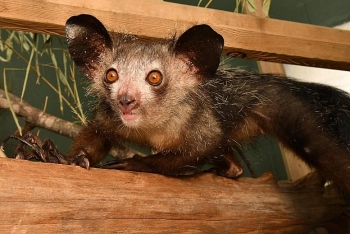 What is Aye-aye - Strangest Animal In The World What is Aye-aye - Strangest Animal In The World The aye-aye (Daubentonia madagascariensis) is a long-fingered lemur listed as the world's largest nocturnal primate. It is native to Madagascar with rodent-like teeth that perpetually ... |
 Top 15 Weirdest Animals in the World That Still Exist Today Top 15 Weirdest Animals in the World That Still Exist Today With more than 8 million species of living things on Earth, no wonder that nobody knows or has seen them all. |


